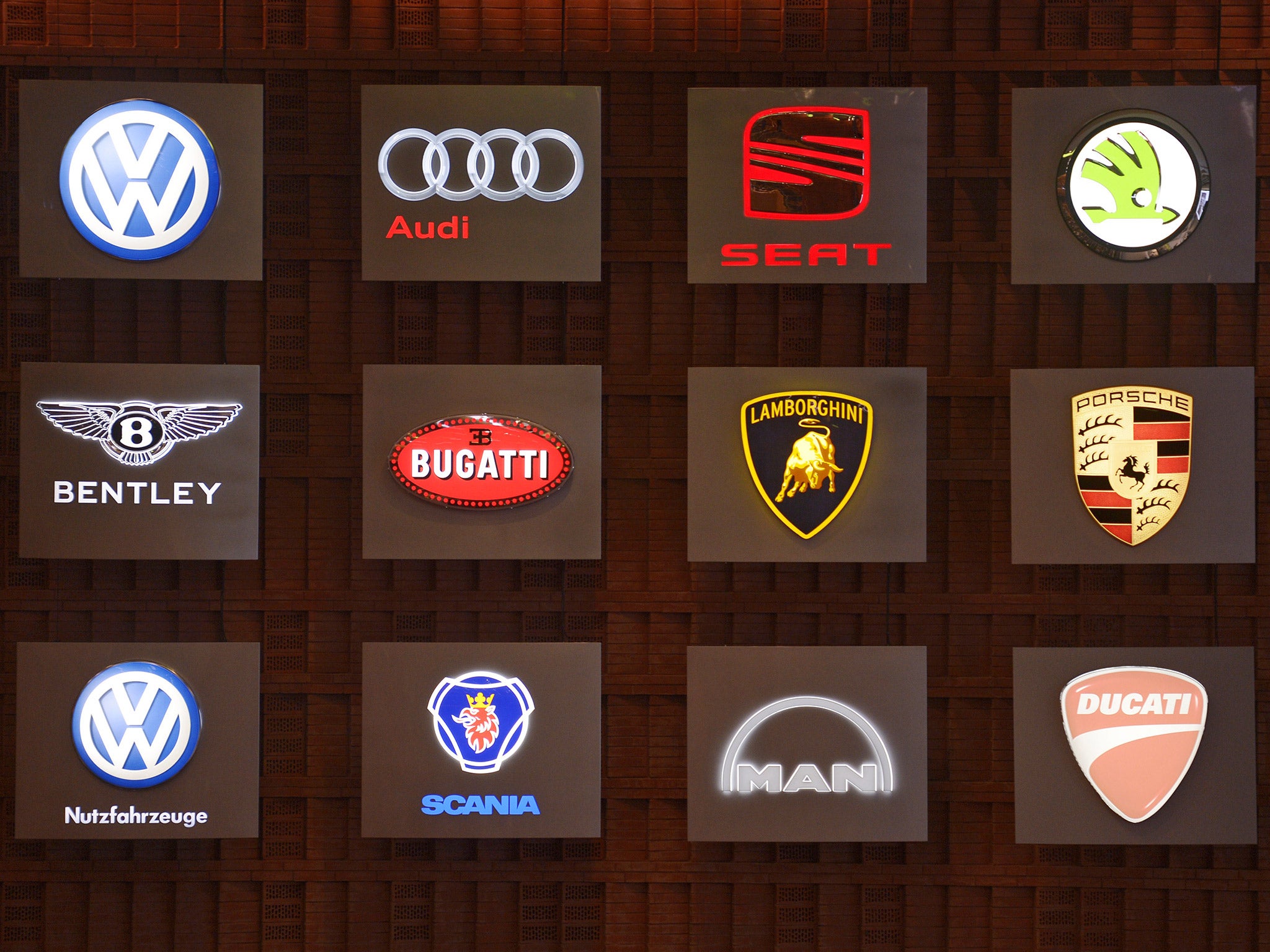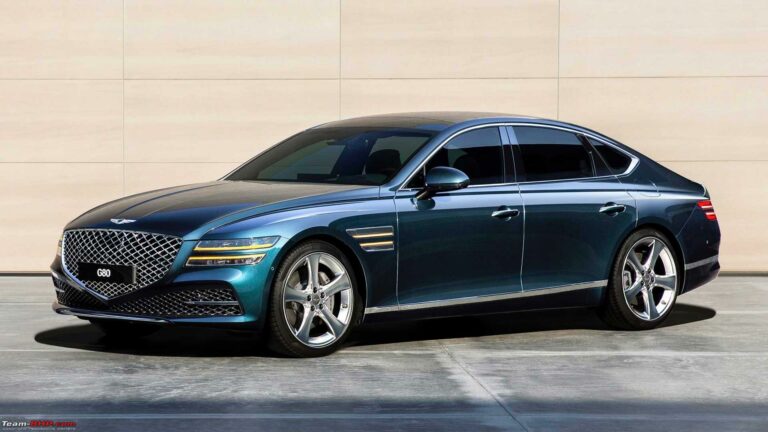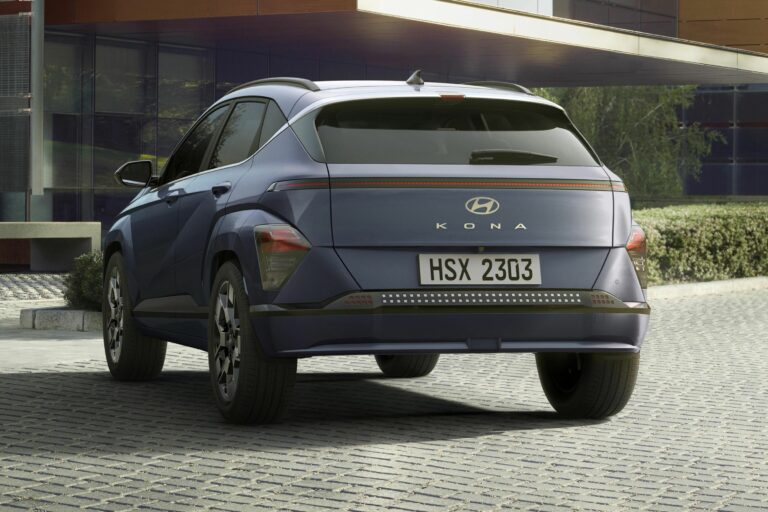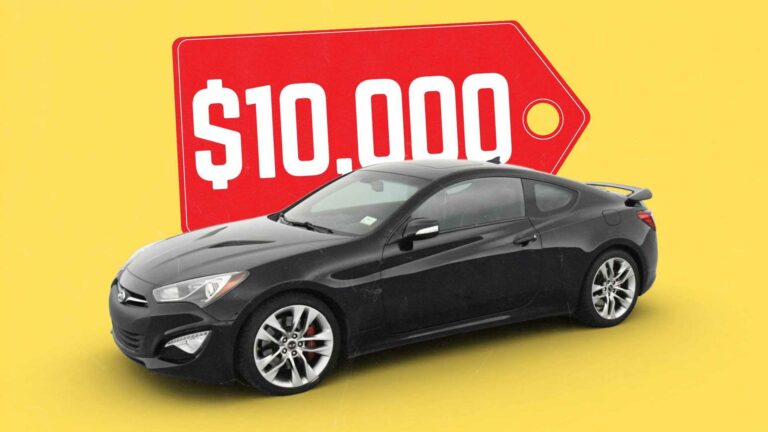What Car Brands Does VW Own: A Deep Dive into the Volkswagen Group’s Vast Empire
What Car Brands Does VW Own: A Deep Dive into the Volkswagen Group’s Vast Empire cars.truckstrend.com
The automotive industry is a complex web of ownership, alliances, and shared technologies. Among the titans of this industry, the Volkswagen Group stands out as a true colossus, owning a surprising array of well-known and niche car brands that cater to virtually every segment of the market. Far from being just the maker of the Beetle or Golf, Volkswagen AG is a sprawling conglomerate that embodies a multi-brand strategy unlike almost any other.
Understanding "What car brands does VW own" is not merely a matter of trivia; it offers crucial insights into global automotive strategies, market segmentation, technological synergies, and the sheer scale of modern manufacturing. This comprehensive guide will peel back the layers of the Volkswagen Group, revealing the diverse family of brands under its expansive umbrella, exploring the strategic rationale behind this ownership, and offering practical insights for anyone interested in the automotive world.
What Car Brands Does VW Own: A Deep Dive into the Volkswagen Group’s Vast Empire
The Volkswagen Group: A Global Automotive Giant
At its core, the Volkswagen Group (Volkswagen Aktiengesellschaft, or VW AG) is a German multinational automotive manufacturing corporation headquartered in Wolfsburg, Lower Saxony, Germany. Founded in 1937, it has grown from its humble beginnings to become one of the world’s leading automakers, consistently vying for the top spot in global vehicle production and sales.
The Group’s strategy revolves around a deep understanding of market needs, technological innovation, and efficient production processes. By acquiring and nurturing a diverse portfolio of brands, Volkswagen has achieved remarkable economies of scale, allowing for shared platforms, components, and research & development across its various marques. This multi-brand approach enables them to target a vast spectrum of customers, from budget-conscious buyers to ultra-luxury connoisseurs, all while leveraging collective resources.
The Core Brands: Passenger Cars for Every Need
The backbone of the Volkswagen Group’s sales volume comes from its mainstream passenger car brands, each meticulously positioned to capture a specific demographic and market segment.
- Volkswagen (VW): The eponymous brand is the heart of the group, known for its reliable, practical, and well-engineered vehicles. From compact cars like the Golf and Polo to SUVs like the Tiguan and Touareg, and the iconic ID. electric family, VW aims for a broad appeal, emphasizing quality, safety, and modern design. It serves as the group’s volume leader and often pioneers new technologies that eventually trickle down to other brands.
- Skoda: Hailing from the Czech Republic, Skoda has transformed itself from an Eastern European workhorse into a highly respected brand known for its exceptional value, practicality, and "Simply Clever" features. Skoda cars, such as the Octavia, Superb, and Kodiaq, offer generous interior space, robust build quality, and competitive pricing, making them a popular choice for families and pragmatic buyers across Europe and beyond.
- SEAT: Spain’s only major car manufacturer, SEAT (Sociedad Española de Automóviles de Turismo) brings a youthful, sporty, and emotional flair to the group. With models like the Ibiza, Leon, and Arona, SEAT targets a younger demographic with dynamic styling, engaging driving characteristics, and a focus on connectivity. In recent years, SEAT has also launched CUPRA, a performance-oriented sub-brand that has now evolved into a standalone brand, offering sportier, premium-positioned vehicles. While distinct, CUPRA remains firmly within the SEAT (and thus VW Group) family.

Luxury and Performance: The Premium Portfolio
Beyond the mainstream, the Volkswagen Group commands an impressive lineup of premium and luxury brands, each a benchmark in its respective category.
- Audi: A pillar of German luxury and engineering, Audi is renowned for its sophisticated design, advanced technology (especially quattro all-wheel drive), and refined driving experience. From compact sedans like the A3 to executive saloons like the A6 and A8, and a comprehensive range of SUVs (Q models) and performance RS variants, Audi competes directly with Mercedes-Benz and BMW, emphasizing "Vorsprung durch Technik" (Progress through Technology).
- Porsche: The quintessential German sports car manufacturer, Porsche is synonymous with performance, engineering excellence, and motorsport heritage. While famous for the 911, Boxster, and Cayman, Porsche has successfully expanded its lineup to include high-performance SUVs (Cayenne, Macan) and a groundbreaking electric sports car (Taycan), maintaining its exclusive, performance-driven image.
- Bentley: Representing the pinnacle of British luxury and craftsmanship, Bentley produces ultra-luxury cars that combine opulent interiors, powerful engines, and exquisite attention to detail. Models like the Continental GT, Flying Spur, and Bentayga SUV cater to an elite clientele seeking unparalleled comfort, prestige, and bespoke customization.
- Lamborghini: The Italian purveyor of extreme supercars and hypercars, Lamborghini is known for its dramatic styling, thunderous V10 and V12 engines, and exhilarating performance. The Aventador, Huracán, and the groundbreaking Urus SUV are symbols of audacious design and unbridled power, appealing to enthusiasts who desire the ultimate in automotive theatrics.


Exotic and Hypercar Royalty
- Bugatti: For decades, Bugatti has stood as the ultimate expression of automotive exclusivity and engineering prowess, creating some of the fastest and most luxurious hypercars in the world. Originally a French marque, it was revived by the Volkswagen Group in the late 1990s. As of 2021, Bugatti has entered a joint venture with Croatian electric hypercar maker Rimac Automobili, forming Bugatti Rimac. While no longer 100% owned by VW Group, Porsche (a VW Group subsidiary) holds a significant stake in Bugatti Rimac, meaning Bugatti remains indirectly connected to the VW family, benefiting from shared expertise while forging a new, electrified future.
Commercial Vehicles and Heavy Duty
The Volkswagen Group’s reach extends far beyond passenger cars, encompassing a robust commercial vehicle division that serves various industries.
- Volkswagen Commercial Vehicles: This brand produces light commercial vehicles, including vans (Transporter, Caddy), pickups (Amarok), and campers (California), catering to businesses, tradespeople, and adventurers worldwide.
- MAN: A German manufacturer of trucks, buses, and diesel engines, MAN SE is a leading name in heavy commercial vehicles, offering robust solutions for logistics, construction, and public transport.
- Scania: The Swedish giant, Scania, is globally recognized for its premium heavy trucks, buses, and industrial and marine engines. Scania vehicles are known for their fuel efficiency, reliability, and modular design, serving long-haul transportation and specialized applications.
Motorcycles
- Ducati: A jewel in the crown of Italian motorcycling, Ducati is celebrated for its high-performance, race-bred motorcycles. Known for their distinctive L-twin engines and iconic designs, Ducati bikes evoke passion and excitement among riders worldwide. Its inclusion in the VW Group (via Audi) highlights the group’s diverse engineering capabilities and appreciation for premium mobility across different forms.
Beyond Brands: Components and Services
The Volkswagen Group also comprises various internal divisions and service providers that support its automotive operations:
- Volkswagen Financial Services: Provides financing, leasing, insurance, and mobility services to customers and dealers.
- Volkswagen Group Components: Develops and produces a wide array of vehicle components, including engines, transmissions, electric drives, and chassis parts, supplying them to the various brands within the group and to external customers.
Strategic Rationale Behind Diversification
Why does Volkswagen own so many brands? This multi-brand strategy is not accidental; it’s a meticulously crafted approach with several key advantages:
- Market Segmentation: Each brand targets a specific demographic, price point, or lifestyle, allowing the Group to capture a wider share of the global automotive market.
- Economies of Scale: By sharing platforms (like the MQB, MLB, MEB, and PPE architectures), engines, and components across multiple brands, VW can significantly reduce research, development, and production costs.
- Technological Synergies: Innovations developed by one brand (e.g., Audi’s quattro or Porsche’s EV tech) can be adapted and shared, accelerating technological progress across the entire group.
- Risk Diversification: Reliance on a single brand or market segment can be risky. A diverse portfolio mitigates this by spreading investments and sales across various segments and geographies.
- Brand Identity and Heritage: Acquiring iconic brands like Porsche, Lamborghini, and Bentley allows the Group to tap into their rich heritage, unique brand identities, and loyal customer bases, adding prestige and emotional appeal.
Benefits of VW’s Multi-Brand Strategy
The benefits extend beyond cost savings and market reach:
- Enhanced Competitiveness: The ability to offer a product for almost any need makes the VW Group incredibly competitive globally.
- Flexibility in Product Development: Shared platforms allow for quicker development of new models and adaptations to changing market trends.
- Talent Pool and Knowledge Transfer: A large group attracts top talent and fosters a rich environment for knowledge sharing across different engineering and design teams.
Challenges and Future Outlook
Despite its strengths, the multi-brand strategy also presents challenges:
- Brand Differentiation: Ensuring each brand maintains a distinct identity and avoids cannibalizing sales from another.
- Managing Complexity: The sheer scale and diversity require sophisticated management, logistics, and supply chain operations.
- Electrification Transition: Adapting such a vast and diverse portfolio to the electric vehicle era while maintaining brand-specific characteristics is a massive undertaking.
- Software Development: The increasing importance of software and digital services requires a unified yet flexible approach across brands.
The future of the Volkswagen Group is clearly focused on electrification, digitalization, and autonomous driving. By leveraging its collective strength, shared platforms (like the MEB and upcoming SSP), and immense R&D capabilities, the Group aims to lead the transformation of the automotive industry, ensuring its diverse family of brands continues to thrive in a rapidly evolving landscape.
Practical Advice for the Reader
For consumers, understanding the Volkswagen Group’s ownership structure can be incredibly insightful. If you’re considering a vehicle from any of these brands, knowing their familial ties can inform your decision:
- Budget vs. Features: A Skoda might offer similar core engineering to a Volkswagen but at a more competitive price point, while an Audi builds on that with premium materials and advanced tech.
- Performance Needs: If you appreciate the engineering prowess of a VW but desire more performance, a CUPRA or even a base Porsche model might be within reach, sharing underlying components.
- Resale Value and Servicing: Shared parts can sometimes mean easier access to components and potentially more affordable servicing across the group, though luxury brands will naturally have higher maintenance costs.
- Future-Proofing: Vehicles built on shared electric platforms (like MEB) benefit from the group’s massive investment in EV technology, potentially offering better range, charging speeds, and software updates over time.
VW Group Brand Portfolio Overview
| Brand | Type/Segment | Key Characteristics | Typical Market Position |
|---|---|---|---|
| Volkswagen (VW) | Mainstream Passenger Cars | Reliable, practical, well-engineered, broad appeal, innovative | Mass Market, Mid-Range |
| Skoda | Value-Oriented Passenger Cars | Spacious, practical, "Simply Clever" features, excellent value for money | Value, Mainstream |
| SEAT | Sporty Passenger Cars | Dynamic styling, engaging driving, youthful appeal, connectivity | Mainstream, Youth-Oriented |
| CUPRA | Performance & Premium Passenger Cars | Sporty design, performance focus, higher-end features, emotional appeal | Premium Performance |
| Audi | Luxury & Premium Passenger Cars | Sophisticated design, advanced technology, refined driving, quattro AWD | Premium Luxury |
| Porsche | Sports Cars & Performance SUVs | High performance, iconic design, engineering excellence, motorsport heritage | High-End Luxury, Sports |
| Bentley | Ultra-Luxury Cars | Exquisite craftsmanship, opulent interiors, powerful engines, bespoke customization | Ultra Luxury |
| Lamborghini | Supercars & Performance SUVs | Extreme performance, dramatic styling, powerful engines, exclusive | Exotic, Supercar |
| Bugatti | Hypercars | Ultimate speed, exclusivity, unparalleled luxury, engineering marvel (now Bugatti Rimac JV) | Hypercar, Ultra-Exclusivity |
| Volkswagen Commercial Vehicles | Light Commercial Vehicles | Vans, pickups, campers, practical, robust, versatile | Commercial |
| MAN | Heavy Trucks & Buses | Reliable, robust, industrial-grade, engines, public transport solutions | Heavy Commercial |
| Scania | Heavy Trucks & Buses | Premium, fuel-efficient, modular design, long-haul, industrial & marine engines | Heavy Commercial, Premium |
| Ducati | Motorcycles | High-performance, race-bred, iconic design, Italian passion | Premium Motorcycle |
Frequently Asked Questions (FAQ)
Q1: Why does Volkswagen own so many car brands?
A1: Volkswagen employs a multi-brand strategy primarily for market segmentation, allowing it to target diverse customer demographics and price points. This also facilitates economies of scale through shared platforms and components, reduces R&D costs, and diversifies risk across different market segments and geographies.
Q2: Are all VW Group cars built on the same platforms?
A2: Many VW Group cars share modular platforms (e.g., MQB for smaller/mid-size combustion cars, MEB for mainstream EVs, PPE for premium EVs). While the underlying architecture is similar, each brand customizes the design, tuning, materials, and technology to maintain its unique identity and driving characteristics.
Q3: Does VW make all the parts for its owned brands?
A3: The VW Group has a dedicated Components division that produces many core parts like engines, transmissions, and chassis components, which are then supplied to its various brands. However, specific components, unique designs, and specialized parts are often developed independently by each brand or sourced from external suppliers.
Q4: What is the most expensive brand VW owns?
A4: Historically, Bugatti (prior to its joint venture with Rimac) produced the most expensive cars under VW Group ownership. Currently, among the fully controlled brands, Bentley and Lamborghini represent the pinnacle of luxury and extreme performance, with vehicles often costing hundreds of thousands or even millions of dollars.
Q5: How does the VW Group manage brand differentiation among its brands?
A5: Brand differentiation is managed through distinct design languages, unique interior philosophies, varying levels of technology and luxury features, different driving dynamics tuning, and targeted marketing campaigns. Each brand has its own engineering and design teams that work to maintain its specific identity while benefiting from group synergies.
Q6: What is the future outlook for the Volkswagen Group’s brands?
A6: The VW Group is heavily invested in the future of mobility, with a strong focus on electrification (developing new EV platforms like SSP), digitalization (software-defined vehicles), and autonomous driving. All brands are transitioning towards electric powertrains, adapting their unique identities to the new era while leveraging the group’s collective resources for innovation.
Conclusion
The Volkswagen Group’s ownership of a vast array of car brands is a testament to its strategic foresight and ambition to be a global leader in automotive manufacturing. From the accessible reliability of Volkswagen and Skoda to the cutting-edge luxury of Audi and Porsche, and the exotic allure of Lamborghini and Bentley, the Group has meticulously crafted a portfolio that caters to nearly every taste and budget. This multi-brand approach, driven by shared platforms, technological synergies, and astute market segmentation, allows the VW Group to navigate the complex automotive landscape with remarkable efficiency and reach. As the industry shifts towards electrification and digitalization, the collective strength of these diverse brands positions the Volkswagen Group not just as an owner of car brands, but as a formidable force shaping the future of mobility worldwide.






